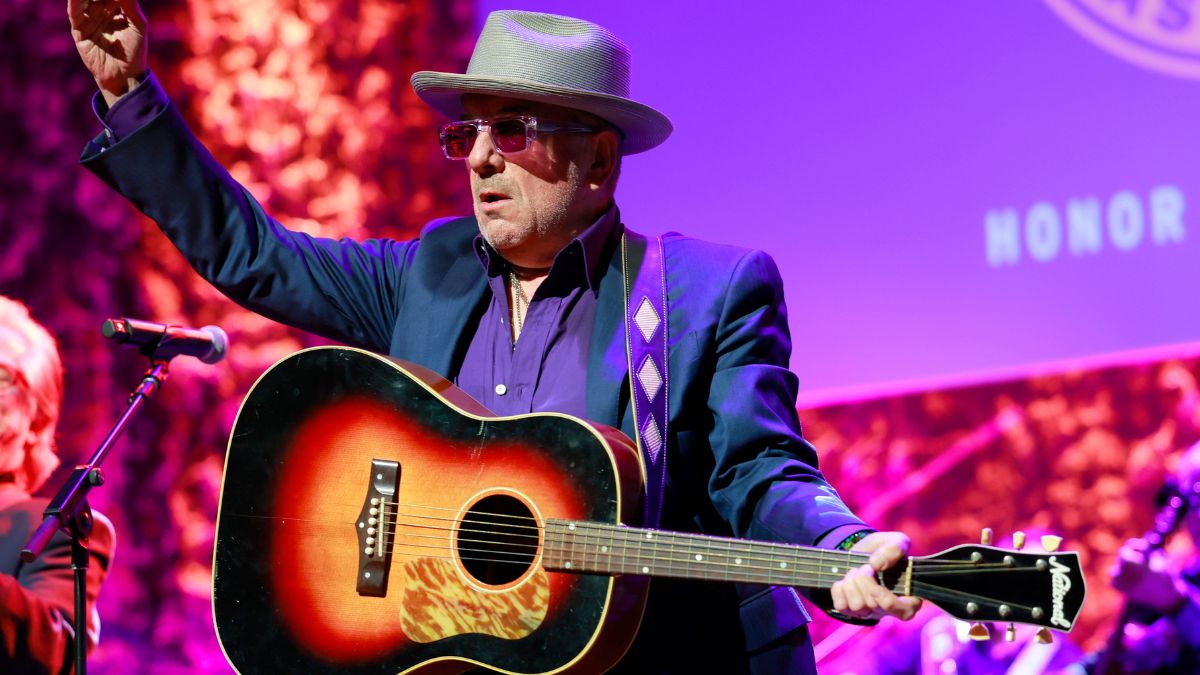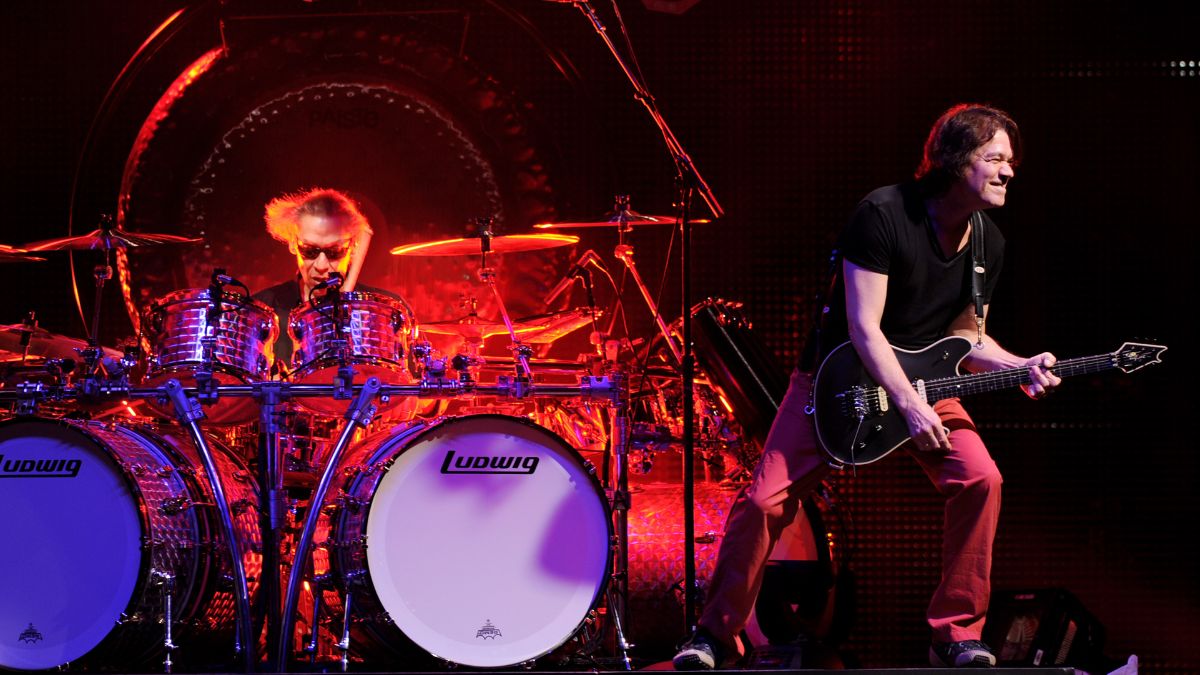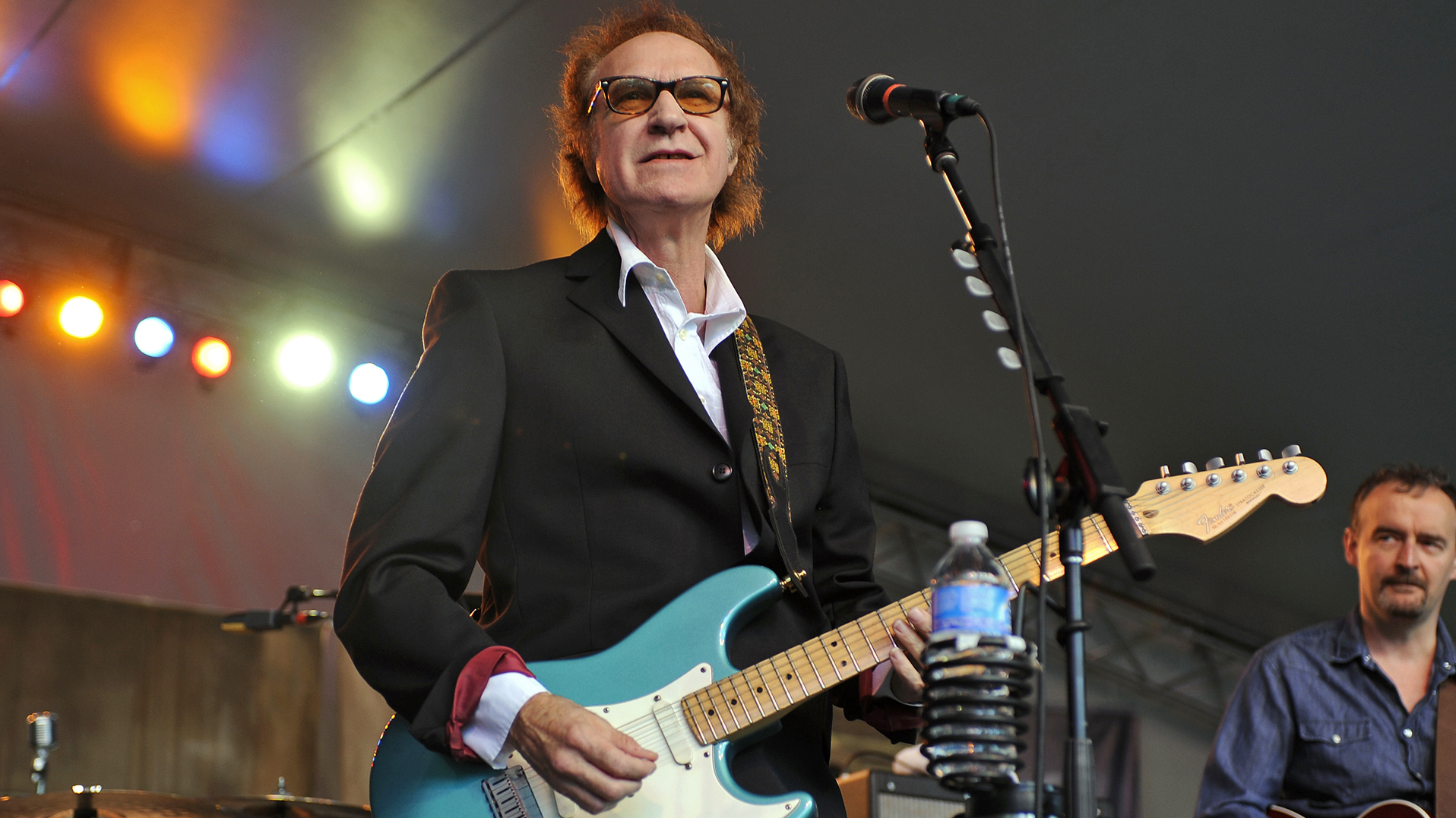“They can get on their rocket ship and don’t f***ing come back. Nobody wants to be me anyway.” Elvis Costello identifies what AI is really all about. And it isn't music
While the Beatles used the technology to complete their last single, Brian May and Sting are among those who are worried about the potential for harm

The angels may have wanted to wear his red shoes, but Elvis Costello has no concerns that AI is coming for his voice.
The guitar-slinging songwriter weighed in on the subject in a recent interview with The Telegraph. Asked what he thinks about AI replicating and exploiting his signature style, Costello had a simple answer
“There’s no money in it!" he says, cutting straight to the heart of the matter. “Nobody wants to be me anyway, so I don’t see them conceiving of an algorithm that’s specifically trying to track me down.
"I live in a different universe to AI. So they can get on with that whole fantasy — get on your rocket ship and don’t fucking come back!”
Not everyone shares his outlook. AI's ability to create songs using faithful impersonations of an artist's style has many concerned. Brian May recently told Guitar Player he’s “apprehensive” about AI’s impact on the music industry. “By this time next year the landscape will be completely different," he said. "We won’t know which way is up. We won’t know what’s been created by AI and what’s been created by humans.”
Sting voiced his concerns as well, saying artists will have to “fight” against its dangers, which include taking jobs from performers, recording engineers and videographers.
Others have viewed the new technology more positively.
All the latest guitar news, interviews, lessons, reviews, deals and more, direct to your inbox!
The Beatles used it to bring one last song, "Now and Then," to completion by separating John Lennon's voice from a vocal-and-piano home cassette recording made in the 1970s. Paul McCartney and Ringo Starr were then able to combine their new contributions with performances recorded by George Harrison in 1995, creating the first "new" Beatles recording involving all four members since "Real Love" was released in 1996.
The results left McCartney suitably impressed.
“There it was, John’s voice, crystal clear,” he said. “And we all play on it, it’s a genuine Beatles recording.”
“It was the closest we’ll ever come to having him back in the room,“ Starr added. “It was like John was there, you know. It’s far out.”
Longtime Hendrix producer Eddie Kramer wants to follow in their footsteps, admitting, “There are tapes I’d love to get me hands on.”

Alex Van Halen, meanwhile, has approached OpenAI, the firm behind ChatGPT, with the hope of fleshing out piecemeal Eddie Van Halen recordings.
The technology would analyze “the patterns of how Edward would have played something,” and fill in the blanks. The drummer says what currently exists are “all little pieces,” adding that, “a bunch of licks don’t make a song.”
Former Van Halen bass player Michael Anthony said that the band “recorded every idea we had,” during their time together, and so if the project does come to fruition, there is a lot of material to work from.
Alex released the final song he and Eddie Van Halen worked on together last month.
A freelance writer with a penchant for music that gets weird, Phil is a regular contributor to Prog, Guitar World, and Total Guitar magazines and is especially keen on shining a light on unknown artists. Outside of the journalism realm, you can find him writing angular riffs in progressive metal band, Prognosis, in which he slings an 8-string Strandberg Boden Original, churning that low string through a variety of tunings. He's also a published author and is currently penning his debut novel which chucks fantasy, mythology and humanity into a great big melting pot.


